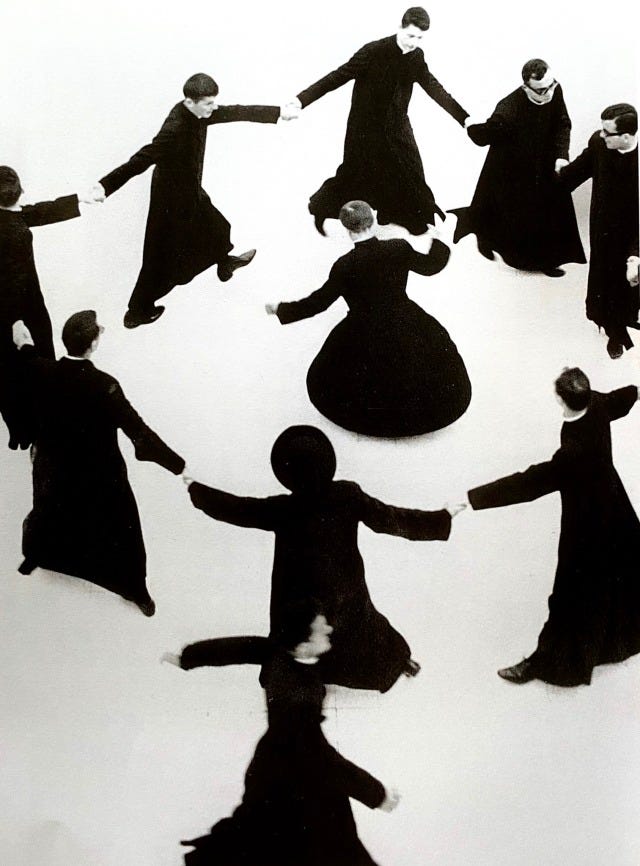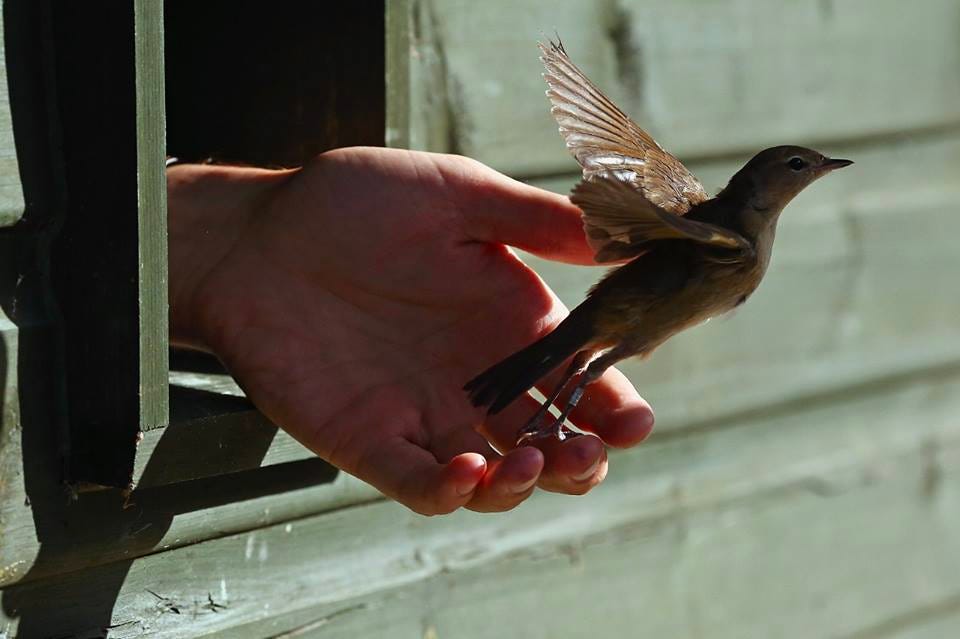a sensible operating manual for a most thrilling little machine
the story goes that Henry David Thoreau had two notebooks: one notebook for recording facts, and one notebook for recording Poetry...
dear little voice,
the story goes that Henry David Thoreau had two notebooks: one notebook for recording facts, and one notebook for recording Poetry.
this seemed like a very sensible decision until he began to have great difficulty deciding upon which to use at any given moment.
often, he found more Poetry within his facts and more Truth within his Poems.
Poetry, he began to realise, translated from the language of the earth into that of the Sky.
Walt Whitman, “Bivouac on a Mountain Side”, Leaves of Grass
Thoreau was clever not only for his words, but because he knew that it is the reality of the world that composes the delicate fabric of the imagination.
one evening, gazing into a summer night, he spotted a star even lonelier than he was.
maybe, he wondered, that lonely star was a meeting place. maybe, he wondered, other lonely eyes were searching the same lonely Sky when they fixed on the same lonely star.
‘of what unsuspected triangles are stars the apex?’ he asked.
I am sure that as he wrote that he felt as though, suddenly, he was sliding, and felt no presence of any solid thing, and had left only his insides, and only his skin.
a little voice can only wonder which notebook he scribbled that starry secret in.
it is a tempting thing for little voices to believe that Poetry is in an elsewhere place washed out from under the swelling folds of Life and left floating like a foam of daisies. but it takes a tremendous discipline to insist on reality; to insist that there is always Poetry lying close at hand, beneath the bark of every hour.
to know that there is not one wild daisy in all the world that does not hold the scent of a childhood; that that old women watering the apple tree from her drinking glass will always bring you to your knees, that there are quiet conversations, that there are shadows, and anticipation, and sometimes you lose your keys, and in some places it snows on beaches, and that the world is the same as it always was. that it is here, that it exists: quiet and pure as a stone, and you also. that it is everywhere. that we can exist in all this calm and courage and still call it an ordinary life.
to translate the language of the earth into that of the Sky is a task given to those Wallace Stevens named the Necessary Angels of Earth.
“I am the necessary angel of earth, / Since, in my sight, you see the earth again, / Cleared of its stiff and stubborn, man-locked set”
- Wallace Stevens
a Necessary Angel, little voice, confuses the notebooks.
perhaps that’s why they seem to be in the business of tucking secret scribbles in others’ pockets instead.
perhaps they realise that that’s where they’re kept warmest.
the language of the Sky requires the language of the Earth: in the words of Poet Wallace Stevens:
“The imagination loses vitality as it ceases to adhere to what is real… There are degrees of the imagination, as, for example, degrees of vitality and, therefore, of intensity.”
- Wallace Stevens
perhaps this is what Rilke meant when he said that true Art “lets the Earth be an Earth.”
to wander and wonder are differentiated only by the o- pronounced oh! in the imagination of the thrilled dreamer who understands that it is the physical world that seeds imagination like the first few tenors of a tongue-tipped song.
the wandering mind is a wondering mind.
the wondering mind is a wandering mind.
what a wonder.
what a thrilling little machine you have up there.
and if you trusted it to stray?
wandering, you see, little voice, is the hand-holder of the imagination. when we wander instead of walk, we refuse to expect anything we have come to expect from the world at all— and, suddenly, a single step dissolves into an endless circle of perpetual discovery.
the curious mind and the curious feet wander the same: with a quiet commitment to the imagination.
it may also be why Thoreau also famously wrote that every walk is a crusade.
it may also be why the only thing separating a wonder and a wonder is the most deliciously ecstatic little:
o(h!)
upon discovering, again, the utterly extraordinary extra-ordinary ordinaries that your little voice has been presented a thousand times before.
it’s just that today you decided to wake up and meet them with:
o(h!)
Joseph Pielichaty’s Blue Skies ( collection of sky photos clipped from the travel section of magazines)
reality is precisely like imagination, for the sole reason that it is unfathomably generous.
whether one wanders or wonders, a single step dissolves into a ceaseless circle— the eye here and there rests on a stone, a stream, a touch, a word, a bowing angel-flower, a candy-wrapper, sea-side foam all clamouring at your Heart.
whatever has happened to you in the world, and whatever is going to happen to you, it is this living moment that contains the sum of existence, all this galloping blood and breathless story in which the legs move, the eyes rest, and— sometimes— something without name inside of you murmurs to toss out the notebooks and Touch what it recognises as the Dream at the heart of this “stiff and stubborn, man-locked” world— this is the pure flash of your imagination tugging on your curiosity’s shirtsleeve, singing:
come. let’s stay a while longer. let’s create an imagination as invisible as music. which is to say it is utterly unseeable, which is to say it is the clearest and most visible and most sudden thing of all.
and then we will have something with which to dance.
I Have No Hands to Caress my Face (Mario Giacomellli, circa 1962)
A group of young trainee priests caught in a rare moment of play.
As a queen sits down, knowing that a chair will be there,
Or a general raises his hand and is given the field-glasses,
Step off assuredly into the blank of your mind.
Something will come to you.
- Walking to Sleep, Richard Wilbur
this music is the vision of a life outside of triumph and defeat, of inarticulate grief, of loneliness and uncertainty, of all the thin and aching threads of empirical reason— it is the spilling of life, it is the passion behind its silence, cantering like a dog until it arrives, breathless, offering you.to invent the sum of your life.
every morning you will awaken and every morning joy will be present or it will not.
this is simple. you can trust in this.
"My head is made of the same material as the sun.”
you can also trust in the world to do something original absolutely every single day now and beyond your life forever.
that it will reveal itself to you in patterns of the language of the earth: of tee tree oil and punctured tires, honeysuckle snarls and empty milk cartons, of children chasing balloons, of traffic lights and of butterscotch and of sighs.
you can trust in her to Play: in the ease of her flickering oscillations between Sky Song and Earth Song, of her spontenaety, of her filaments of joy, of her generosity with the real substance of life— you can trust these living moments are the sum of your existence.
and you can be rain.
that is to say, you can be that precious thing that moves from Sky to Earth, and from Earth to Sky.
that is to say, you can be that precious thing what feeds the Earth and draws out its heady flowers.
it is, little voice, quite a radical act of translation.
Man letting go of bird, so it can fly, Coskun Cokbulan
joy is not perpetual. it is not in our best interests to believe it is.
it is chased, hunted, sported. it is rolled about with in the grass when you grab it by its coat tails, it is giggled with and filthied with love.
and it is in those moments of running breathless and not yet arrived that catching it is possible— and these moments compose the systematic enactment of your imagination.
these moments are the day-to-day movings of our lives, with their fragile shudders and real oscillations, with their imagined and captured joys, that call out to us to run, that cry out for you to notice them.
and it is not a simple plaything. it is a life-force.
you see, little voice, you must learn to re-invent your world— to imagine it.
because the world needs to be invented, one way or another,
and if you do not take up the task, someone will for you.
and as this world’s knees increasingly begin to tremble, and as many little voices latch on to their unmended lives, and as we witness many things that are banal or unkind, it is necessary to remember the necessary task of those necessary angels:
“[The world] needs to be reminded that the old fairy stories are rooted in truth, that imagination is of value, that happy endings do, in fact, occur, and that the blue spring mist that make an ugly street look beautiful is just as real a thing as the street itself.”
this world is ours. and this makes me very happy, little voice.
very, very happy.
take the step off of your mind.
i think I will leave you here, little voice. i have a walk i must go on, and the sun is dancing the earth in a sort of child-song dance outside of my window.
but it has come to seem to me that there are no perfect moments for wandering. instead, there are infinite moments for wandering. maybe, once one begins, there is only wandering.
love,
ars poetica.










little voices everywhere under the moon or the stars in a boundless sky
i wish to invent new worlds with my poetics
i wish to lighten up any shadow that creases a smile
i wish to darken those who are brighter than a rainbow
i find the imagination a wonder as i wander through its secrets
thank you little voices
you can rest assured i won't cease believing in your greatness of soul being.
-- Such a lovely, livening and literal read, Little Voice! Thank you 🧡.